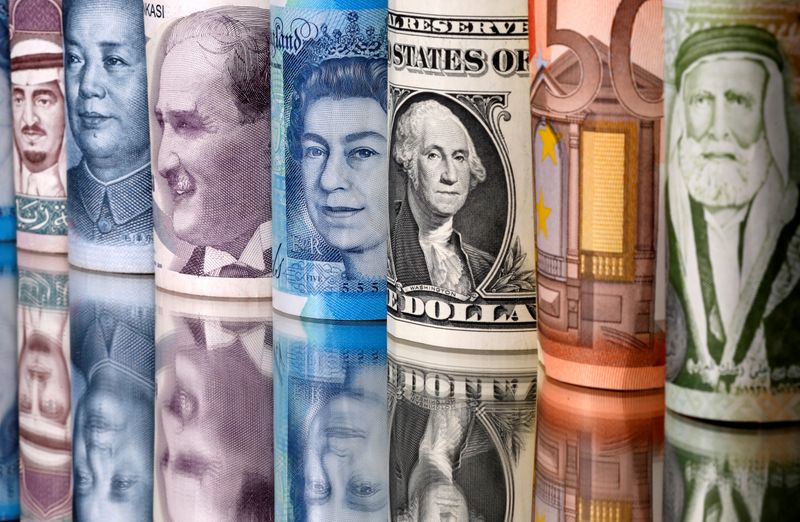
Pound dogged by Brexit worries, yen looks to Abe successor vote
by ReutersBy Hideyuki Sano
TOKYO (Reuters) - The British pound flirted with a 1 1/2-month low against the dollar on Monday on fears about no-deal Brexit while investors waited for Japan's ruling party to choose a successor to Prime Minister Shinzo Abe.
The British pound ticked up slightly in Asia to $1.2819 , after having hit $1.2767 on Friday, its lowest since July 24. It has lost more than 4% so far this month, the worst among G10 currencies.
Against the euro, it slid to a 5 1/2-month low of 92.90 pence per euro (EURGBP=D4) and last stood at 92.39.
The pound was under pressure from fears that Britain will end its post-Brexit transition period with no trade agreements.
London explicitly acknowledged last week that it could break international law by ignoring some parts of its European Union divorce treaty, prompting a rapid rebuke from the EU's chief executive.
Former British prime ministers Tony Blair and John Major said on Sunday Britain must drop a "shocking" plan to pass legislation that breaks its divorce treaty with the European Union, in a breach of international law.
The dollar stood at 106.13 yen , stuck in its familiar territory in the past couple of weeks.
Japanese Chief Cabinet Secretary Yoshihide Suga is poised to become head of Japan's ruling party on Monday and prime minister on Wednesday, succeeding Shinzo Abe, the nation's longest-serving leader.
Because Suga has long been a loyal aide to Abe and has vowed to continue his policies, few market players expect radical changes.
"The focus is on the line-up of his cabinet as well as whether he will call a snap election," said Minori Uchida, chief FX strategist at MUFG Bank. "He is saying he will continue and advance Abenomics but it is questionable how much advancement he can make."
The euro held firm after three straight days of gains at $1.18455 (EUR=).
The common currency was supported after the European Central Bank showed no apparent sign of stemming the single currency's appreciation.
Still, it faces an uphill battle in tackling the $1.20 barrier, with investors wary euro zone policy makers may not want to see the currency strengthen much beyond that level.
Some euro zone countries, such as France and Spain, are reporting rises in coronavirus infections, in contrast to falls in the United States, clouding the outlook for economic recovery.
The dollar's index against a basket of currencies stood little changed at 93.317 (=USD), with focus on the Federal Reserve's policy announcement on Wednesday.
Expectations of further monetary easing by the Fed have been a drag on the dollar. The dollar index has lost more than 4% so far this quarter.
The Fed has announced late last month that it has adjusted its policy strategy, noting that it wants inflation to average 2% over time.
But some analysts say markets may have gone too far in expecting further Fed stimulus.
"Having set aside yield curve control (YCC) as a near-term policy option, the FOMC does not seem to have an operational consensus on how to use the balance sheet," New York-based strategists at Standard Chartered (OTC:SCBFF) Bank wrote in report. "This may disappoint investors."